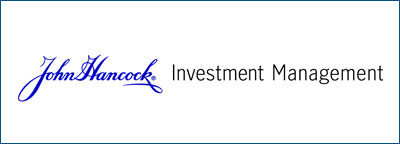Footnotes & Disclaimers
For informational purposes only. Strategy objectives and allocations are subject to change.
*Assets include Assets Under Management ($27.6B) & Assets Under Advisement ($1.4B).
Source: Factset and Axiom. There can be no assurance that the Strategy will continue to hold these positions or that weightings do not change after the as of date stated. Please refer to the attached GIPS compliant presentation for complete performance information.
**SEI Trust Company (the “Trustee”) serves as the Trustee of the Trust and maintains ultimate fiduciary authority over the management of, and the investments made in, the Fund. The Fund is part of a Collective Investment Trust (the “Trust”) operated by the Trustee. The Trustee is a trust company organized under the laws of the Commonwealth of Pennsylvania and a wholly owned subsidiary of SEI Investments Company (SEI).
Firm Compliance Statement: Axiom Investors LLC (the “Firm”) claims compliance with the Global Investment Performance Standards (GIPS®) and has prepared and presented this report in compliance with the GIPS standards. Axiom has been independently verified for the period September 1, 1998 to September 30, 2025. A firm that claims compliance with the GIPS standards must establish policies and procedures for complying with all the applicable requirements of the GIPS standards. Verification provides assurance on whether the firm’s policies and procedures related to composite and pooled fund maintenance, as well as the calculation, presentation, and distribution of performance, have been designed in compliance with the GIPS standards and have been implemented on a firm-wide basis. The Axiom Global Equity composite has had a performance examination for the periods July 1, 2004 to September 30, 2025. The verification and performance examination reports are available upon request.
Definition of the Firm: The firm is currently defined for GIPS purposes as Axiom Investors, LLC (the “Firm”) is a registered investment advisor under the Investment Advisers Act of 1940.
Policies: Policies for valuing investments, calculating performance, and preparing GIPS Reports are available upon request. Past performance does not predict or guarantee future results.
Composite Description: The Global Equity strategy (the “Composite) is designed for investors who seek to invest in a broadly diversified portfolio of international equities. Portfolios are invested in companies located both in the United States and throughout the world. Currencies may be actively managed to reduce portfolio volatility. The Composite represents the performance of all institutional global style fee-paying, discretionary equity accounts, regardless of asset size and comingled fund(s). The Composite was initiated and created in July 2004. A list of composite descriptions, a list of limited distribution pooled fund descriptions, a list of broad distribution pooled funds and performance results are available upon request.
Benchmark Description: The benchmark is the MSCI All Country World index, which is designed to measure the equity market performance of developed and emerging markets. The benchmark is calculated on a total return basis with net dividends reinvested, after the deduction of withholdings taxes and is free float-adjusted market cap weighted and unmanaged. FX is based off London 4 P.M. close.
Significant Cash Flow Policy: Accounts with a cash flow greater than 20% of the portfolio market value are excluded for the month.
Reporting Currency: Valuations are computed and performance is reported in U.S. dollars. FX is based off NY 4 P.M. close.
Fees: Gross of fees returns are presented before management and custodial fees but after all trading expenses. Net of fees returns are calculated by deducting the highest fee from the monthly gross composite return which is expressed above in the stated fee schedule. Returns include the reinvestment of income. Performance is calculated net of withholding taxes on dividends.
Internal Dispersion: Internal dispersion is calculated using the asset-weighted standard deviation of annual gross returns of those portfolios that were in the composite for the entire year. If 5 or less accounts, N/A is shown.
Annualized Standard Deviation: The three-year annualized standard deviation measures the variability of the composite gross returns and the benchmark returns over the preceding 36-month period. The standard deviation is not required for periods prior to 2011.
Batting Average: The number of periods that the portfolio outperforms (or matches) the benchmark divided by the total number of periods.
Tracking Error: The active risk of the portfolio. It determines the standard deviation of the excess returns between the portfolio and the benchmark. It is calculated by creating a new return series of the excess returns and then calculating the population standard deviation of that return series.
Information Ratio: A measure of consistency in excess return. The annualized excess return over a benchmark divided by the annualized standard deviation (population) of excess return.
GIPS® is a registered trademark of CFA Institute. CFA Institute does not endorse or promote this organization, nor does it warrant the accuracy or quality of the content contained herein.
This may contain forward-looking statements within the meaning of the federal securities laws. Actual results could and likely will differ, sometimes materially, from those projected or anticipated.
We are not undertaking any obligation to update or revise any forward looking statements whether as a result of new information, future events or otherwise. You should not take any statements regarding past trends as a representation that trends or activities will continue in the future. Accordingly, you should not put undue reliance on these statements.
The information contained herein represents neither an offer to sell nor a solicitation of an offer to buy any securities or investment service. This strategy will only be offered through appropriate documents, copies of which may be obtained upon request from [email protected]. Offers will not be made in any jurisdiction in which the making of an offer or the acceptance thereof would not be in compliance with the laws of such jurisdiction. Investors should read applicable materials carefully before making a decision to invest.
Risks of investing in the strategy:
Potential loss of investment: No guarantee or representation is made that the investment program used by Axiom will be successful. The strategy represents a speculative investment and involves a high degree of risk. An investment in the strategy should be discretionary capital set aside strictly for speculative purposes. Investors must have the financial ability, sophistication/experience and willing-ness to bear the risks of an investment in the strategy. An investment in the strategy is not suitable for all investors. An investor could lose or a substantial portion of his/her/its investment. Only qualified eligible investors may invest in the strategy. Because of the nature of the trading activities, the results of the strategy’s operations may be volatile from month to month and from period to period. Accordingly, investors should understand that past performance is not indicative of future results.
Fees and expenses: The strategy may be subject to substantial charges for management, advisory and brokerage fees. It may be necessary for those accounts that are subject to these charges to make substantial trading profits to avoid depletion or exhaustion of their assets.
Reliance on key persons: The strategy’s manager or advisor has total trading authority over the strategy and may be subject to various conflicts of interest. The death, disability or departure of the manager or advisor may have a material effect on the strategy.
Counterparty and bankruptcy risk: Although Axiom will attempt to limit its transactions to counterparties which are established, well-capitalized and creditworthy, the strategy will be subject to the risk of the inability of counterparties to perform with respect to transactions, whether due to insolvency, bankruptcy or other causes, which could subject the strategy to substantial losses.
Volatile markets: Market prices are difficult to predict and are influenced by many factors, including changes in interest rates, weather conditions, government intervention and changes in national and international political and economic events.
The above summary is not a complete list of the risks, tax considerations and other important disclosures relating to Axiom products or services. Prospective clients should read all disclosure documents provided by Axiom relating to its products or services before engaging Axiom’s advisory services.
The information herein is only current as of the date indicated, and may be superseded by subsequent market events or for other reasons.
The Axiom Investors Collective Investment Trust is a trust for the collective investment of assets of participating tax-qualified pension and profit sharing plans and related trusts, and governmental plans as more fully described in the Declaration of Trust. The Axiom Investors Trust is managed by SEI Trust Company, the trustee, based on the investment advice of Axiom Investors, the investment adviser to the trust. As a bank collective trust, the Axiom Investors Trust is exempt from registration as an investment company.




